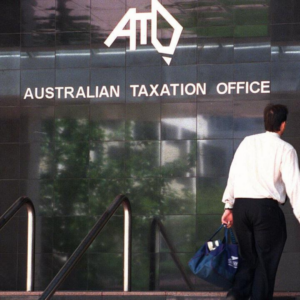
The ATO is currently owed around $66 billion. Nearly all of this amount is validly owed to the ATO – that is it is undisputed. It simply has not been paid.
As we all know, the Federal Government is facing years of budget deficits and having $66 billion tax dollars outstanding is, to put it mildly, not helping! But it gets worse. The ATO believes that only $45 billion of the $66 billion will ever be collected.
The amounts owing to the ATO blew out by over $18 billion over the COVID years as the ATO deliberately adopted a stance of not being aggressive with the collection of its debts. However, those days are over.
In March 2022 the ATO began to actively seek to recover debts from slow-paying taxpayers.
Director Penalty Notices
One of the weapons that the ATO has in its arsenal to recover unpaid tax debts is a Director Penalty Notice (DPN). In 2022, 18,500 DPNs were issued to directors. DPNs are serious documents and anyone receiving a DPN should take advice and engage in immediate action to try and resolve the issue of the unpaid debt with the ATO.
A Director’s Penalty Notice (DPN) is a formal notice issued by the Australian Taxation Office to a company director personally, advising them that the company has an unpaid tax debt and that the director may be personally liable for the debt.
DPNs are issued under the provisions of the Taxation Administration Act 1953 and can be issued in relation to unpaid amounts of a range of taxes.
If a director receives a DPN, they have 21 days from the date of the notice to take one of the following actions:
- Pay the debt in full;
- Enter into a payment arrangement with the ATO;
- Appoint an administrator to the company;
- Place the company into voluntary liquidation.
If the director fails to take any of these actions within the 21-day period, they become personally liable for the unpaid amount, and the ATO can take recovery action against them to recover the debt. This can include garnishing the director’s wages, seizing assets or initiating legal proceedings.
Disclosure to credit reporting agencies

A more recent method of encouraging slow paying taxpayers is for details of the debt and the business to be disclosed to credit reporting agencies. This ensures that the inability of the taxpayer involved to pay its debts to the ATO is reported widely with the resulting effect that the business may not be afforded credit by finance providers.
In 2022 nearly 500 businesses were disclosed to credit reporting agencies.
Don’t be an ostrich
If you owe money to the ATO, the worst thing you can do is not contact the ATO and hope the debt will
somehow disappear or not feature in the ATO’s recovery procedures. This is a bad course of action
and will almost inevitably result in more pain and problems.
Business owners can feel embarrassed and defensive when their business gets into financial difficulties. This situation can be difficult to cope with psychologically. However, “ducking for cover” does not help. Speak with your accountant or perhaps it might be beneficial to speak with an insolvency, turnaround and reconstruction practitioner. These people are expert in dealing with businesses in financial difficulties and they may be able to suggest courses of action that you have not considered.
If you have any questions, please contact our team. We are here to help:
(03) 9374 8400
hello@mksgroup.com.au
Read More Blogs
Accurate Logbook & Odometer Readings: Essential for FBT Compliance
As the end of March approaches, so does the conclusion of the Fringe Benefits Tax…
Unlocking Success: The Benefits of Coaching for Small Business Owners
Understanding Your Minimum Repayment Obligations
6 Tips for Small Business Owners Preparing for the Christmas period
Everything You Need to Know About Your Work From Home Deductions
If you worked from home during the 2024 financial year, this blog is for you!…
3 Ways to Reduce Business Expenses Without Sacrificing Quality
In the dynamic world of small business, maintaining a lean operation without compromising on quality…







